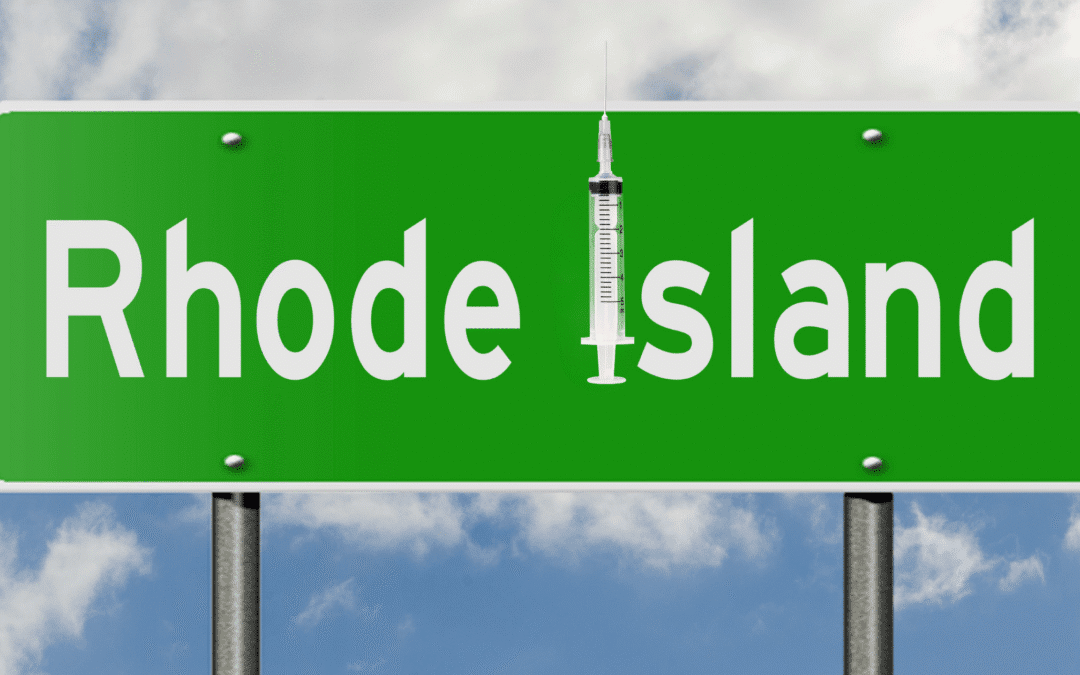New legislation establishes mandatory facility licensing and enhanced supervision protocols for all Rhode Island medical spas – EFFECTIVE IMMEDIATELY!
Rhode Island medical spa owners face significant regulatory changes following Governor Daniel McKee’s signing of the Medical Spas Safety Act (H 5351) on June 30, 2025. This comprehensive legislation establishes the first statutory framework governing cosmetic medical procedures in medical spa settings and requires immediate compliance from all aesthetic practices in the state.
What Rhode Island Medical Spa Owners Must Know About Facility Licensing
The most critical change for Rhode Island medical spa operations is the mandatory facility licensing requirement.
All medical spas must now obtain healthcare facility licenses from the Rhode Island Department of Health, regardless of ownership structure.
This represents a fundamental shift from previous regulations where many aesthetic practices operated under general medical office guidelines.
Medical spas in Rhode Island now join the same regulatory category as ambulatory surgical centers and dialysis facilities. However, aesthetic practices remain exempt from Rhode Island’s “determination of need” requirements, streamlining the licensing process compared to other healthcare facilities.
Time is Ticking
The Rhode Island Department of Health has until July 1, 2026, to establish specific licensing requirements, application procedures, and inspection protocols for medical spa facilities.
Rhode Island Medical Spa Supervision Requirements: Who Can Perform Procedures
The Medical Spas Safety Act establishes clear authorization levels for cosmetic medical procedures. Only physicians, physician assistants (PAs), and advanced practice registered nurses (APRNs) may directly perform these treatments.
Cosmetic Medical Procedures Covered Under Rhode Island Law
-
Botox and dermal filler injections
-
Microneedling treatments
-
Laser hair removal and skin resurfacing
-
Chemical peels beyond superficial depth
-
Sclerotherapy for spider veins
-
Hair transplant procedures
-
Platelet-rich plasma (PRP) treatments
-
Permanent fat removal procedures
-
Radio frequency skin tightening
Medical Spa Delegation Rules in Rhode Island
Licensed non-physicians, including registered nurses and estheticians, may perform certain cosmetic procedures only when specific conditions are met:
- Procedures must fall within their professional scope of practice
- Express written delegation from supervising physician, PA, or APRN required
- Appropriate supervision maintained per statutory definitions
- Proper training in safe and effective procedure performance completed
Important Restriction
Ablative laser treatments and ablative energy device procedures cannot be delegated and must be performed exclusively by physicians, PAs, or certified nurse practitioners.
Medical Spa Delegation Rules in Rhode Island
Licensed non-physicians, including registered nurses and estheticians, may perform certain cosmetic procedures only when specific conditions are met:
- Procedures must fall within their professional scope of practice
- Express written delegation from supervising physician, PA, or APRN required
- Appropriate supervision maintained per statutory definitions
- Proper training in safe and effective procedure performance completed
Important restriction: Ablative laser treatments and ablative energy device procedures cannot be delegated and must be performed exclusively by physicians, PAs, or certified nurse practitioners.
Medical Director Requirements for Rhode Island Medical Spas
Every Rhode Island medical spa must employ or contract with a qualified medical director. This position requires either a physician or certified nurse practitioner with documented training in cosmetic medical procedures. Manufacturer or vendor-provided training alone does not satisfy this requirement.
Medical Director Responsibilities Include:
-
Implementing comprehensive policies and treatment protocols
-
Overseeing all delegation and supervision arrangements
-
Ensuring staff training and competency verification
-
Maintaining proper documentation and patient records
-
Quality assurance and patient safety oversight
-
Compliance monitoring and reporting
Patient Care Documentation Requirements
Rhode Island medical spa providers must follow strict documentation protocols before performing any cosmetic treatments. A supervising physician, PA, or APRN must complete these steps:
Pre-Treatment Requirements:
- Conduct comprehensive initial patient assessment
- Develop written, individualized treatment plan
- Obtain detailed informed consent
- Establish complete medical records
- Document medical history and contraindications
All treatment providers must maintain detailed procedure documentation, review treatments with patients, and immediately report adverse events or complications to both the medical director and supervising practitioner.
Medical Spa Compliance Timeline: What to Do Now
Rhode Island medical spa owners should begin compliance preparation immediately, as the law took effect upon signing. Industry experts recommend focusing on these priority areas:
Immediate Action Items:
- Review Medical Director Arrangements: Ensure current medical directors meet enhanced training and responsibility requirements
- Assess Supervision Models: Verify all delegation practices align with new standards, especially for ablative procedures
- Update Documentation Systems: Develop written protocols, treatment planning, and consent processes
- Prepare for Facility Licensing: Begin gathering documentation for upcoming license applications
- Evaluate Staffing Models: Review current staffing arrangements under new supervision requirements
Medical Spa Industry Trends: Rhode Island Joins National Movement
Rhode Island’s Medical Spas Safety Act reflects growing nationwide regulatory attention on aesthetic medicine practices. The American Med Spa Association reports similar legislation introduced in multiple states during 2025, indicating enhanced oversight may become the industry standard.
Multi-state medical spa operators should note that scope of practice, supervision, and licensing standards vary significantly between jurisdictions. This legislation may serve as a model for other states considering aesthetic medicine regulation.
Key Takeaways for Medical Spa Practice Managers
The Rhode Island Medical Spas Safety Act creates both challenges and opportunities for aesthetic practice owners:
Benefits:
- Enhanced public confidence in medical spa services
- Clear regulatory framework reduces compliance uncertainty
- Professional standards support sustainable industry growth
- Exemption from determination of need requirements
Challenges:
- Mandatory facility licensing costs and administrative burden
- Enhanced supervision requirements may require staffing adjustments
- Documentation protocols increase operational complexity
- Training requirements for medical directors and staff
Next Steps: Monitoring Rhode Island Medical Spa Regulations
The Rhode Island Department of Health‘s rulemaking process will provide crucial details about licensing applications, facility standards, and inspection procedures. Medical spa owners should monitor regulatory developments and consider engaging qualified healthcare attorneys familiar with aesthetic medicine compliance.
Rhode Island medical spa operators with questions about compliance should consult with qualified legal counsel. Specific licensing requirements will be available through the Rhode Island Department of Health’s Center for Health Facilities Regulation as final regulations are published.
About Medspa Mastery: Stay informed about medical spa regulations, business strategies, and industry trends. For more compliance guidance and practice management resources, explore our comprehensive library of medical spa business articles











